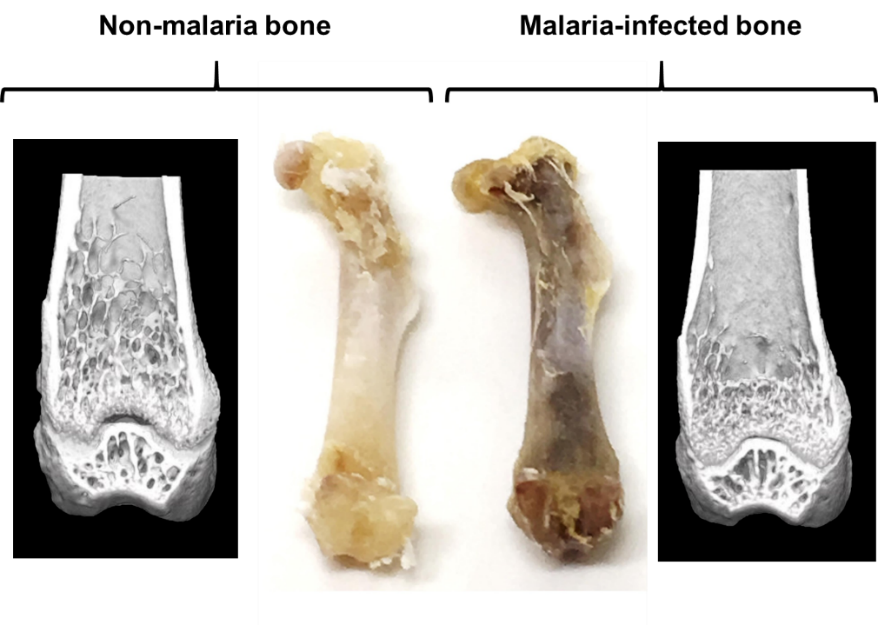News & Topics
Plasmodium products persist in the bone marrow and promote chronic bone loss (Coban group, in Science Immunology)
Cevayir Coban's group (Malaria Immunology) and others have revealed that malaria infection induces robust immune activation and invasion of parasite by-products into the bone marrow leading to harmful outcomes on bone homeostasis.
The Coban Team have used mouse malaria models to show that even after one time malaria infection, Plasmodium products gradually accumulate in the bone marrow niche and are "eaten-up" by bone resorbing cells osteoclasts. These accumulated malarial products in bone marrow niche induce MyD88-dependent inflammatory responses in osteoclast and osteoblast precursors, leading to increased RANKL expression and over-stimulation of osteoclastogenesis favoring bone resorption. Infection with a mutant parasite with impaired hemoglobin digestion that produces little hemozoin, a major Plasmodium by-product, did not cause bone loss. Importantly, malaria-mediated bone loss was found to be more severe in those of younger age, leading to growth retardation.
The Coban Team additionally showed that supplementation of alfacalcidol, a vitamin D3 analog, reverses the adverse outcomes of malaria infection on bone. Their results highlight the risk of bone loss in malaria-infected patients and the potential benefits of coupling bone therapy with anti-malarial treatment.
Commentary (PDF)
Article (External Link)
Contact:

Cevayir COBAN (Malaria Immunology)
![]() 06-6879-4805
06-6879-4805 ![]() ccoban
ccoban![]() biken.osaka-u.ac.jp
biken.osaka-u.ac.jp

